BUBBLE AND FIZZ


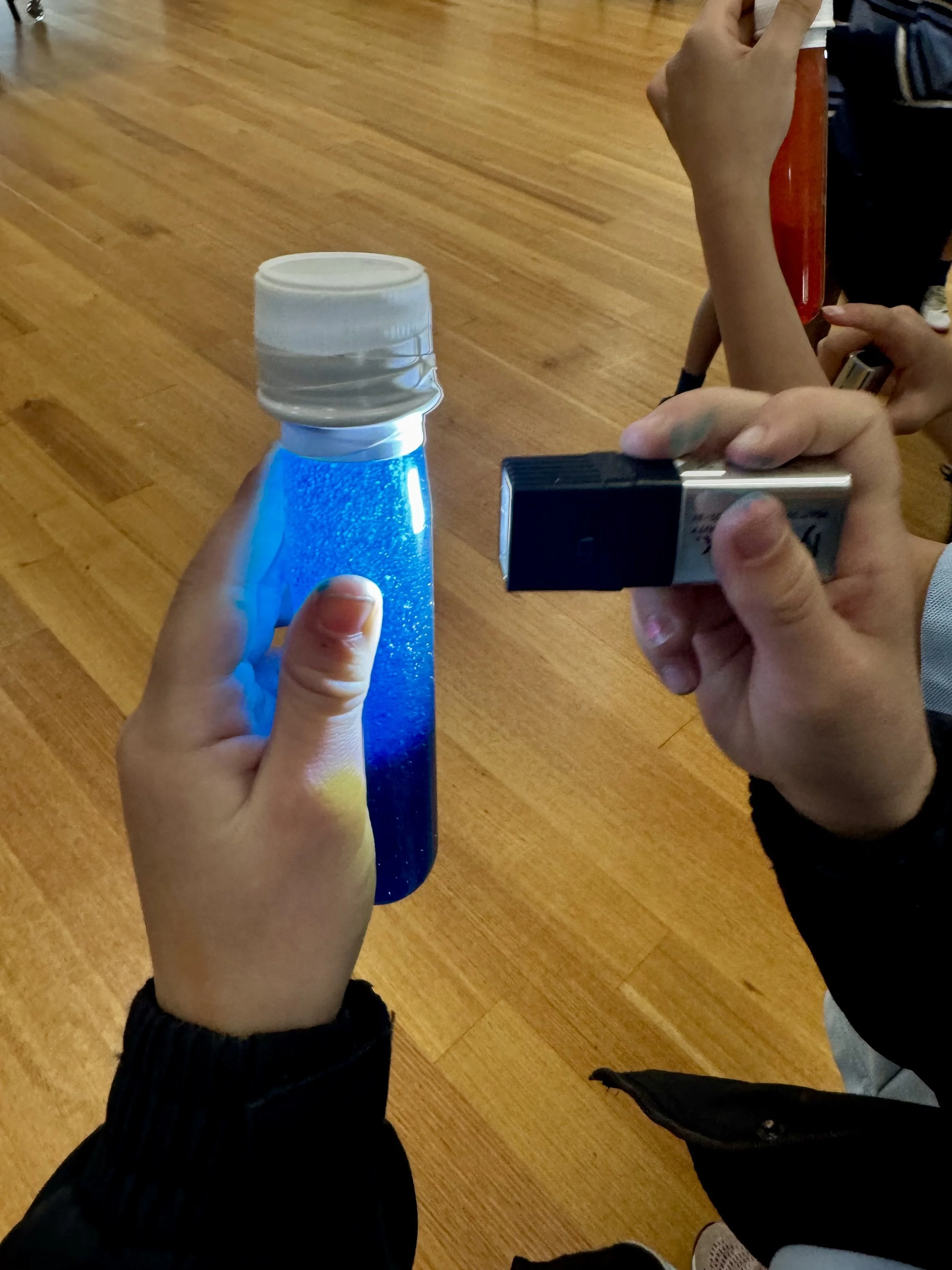
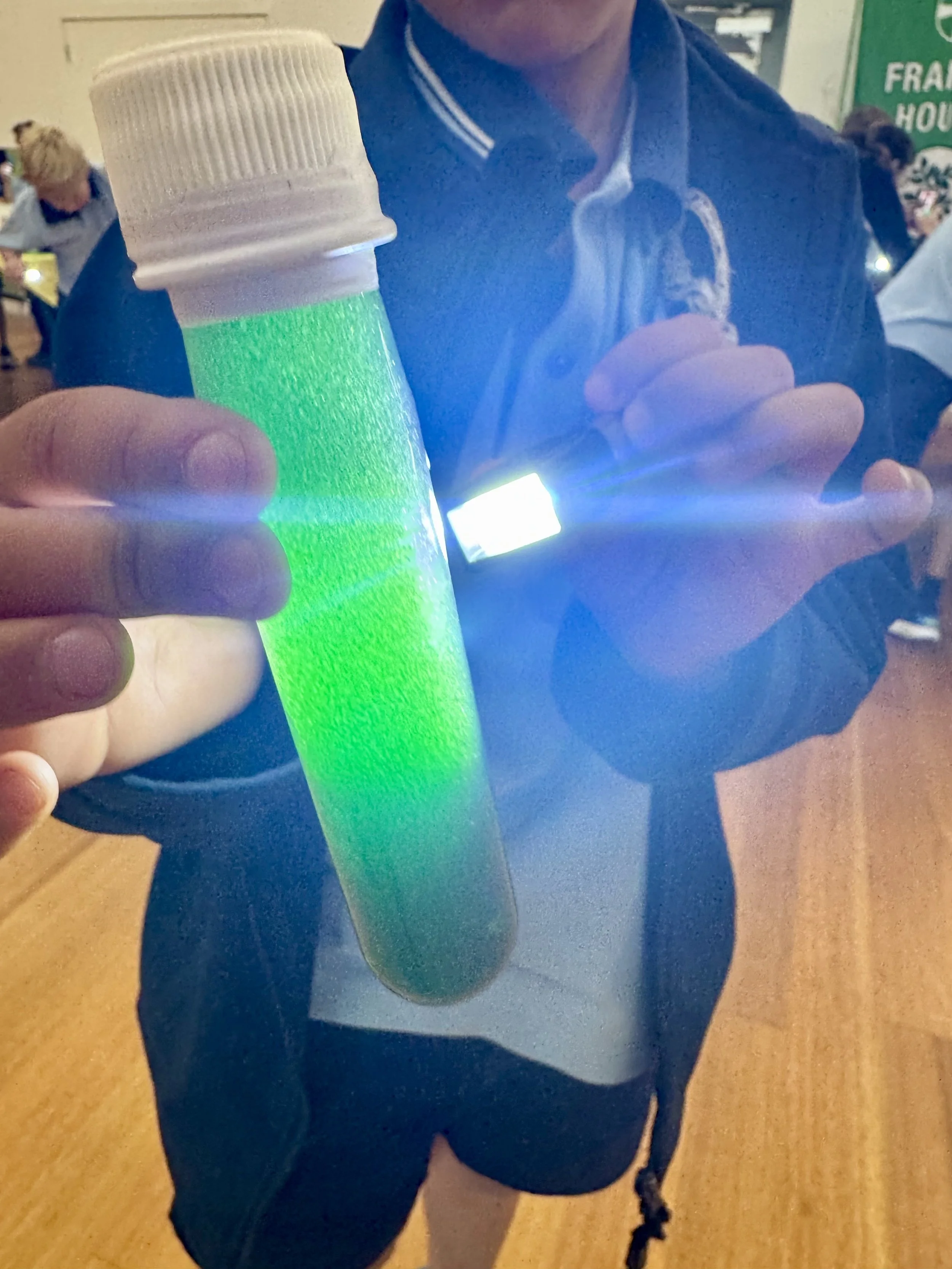
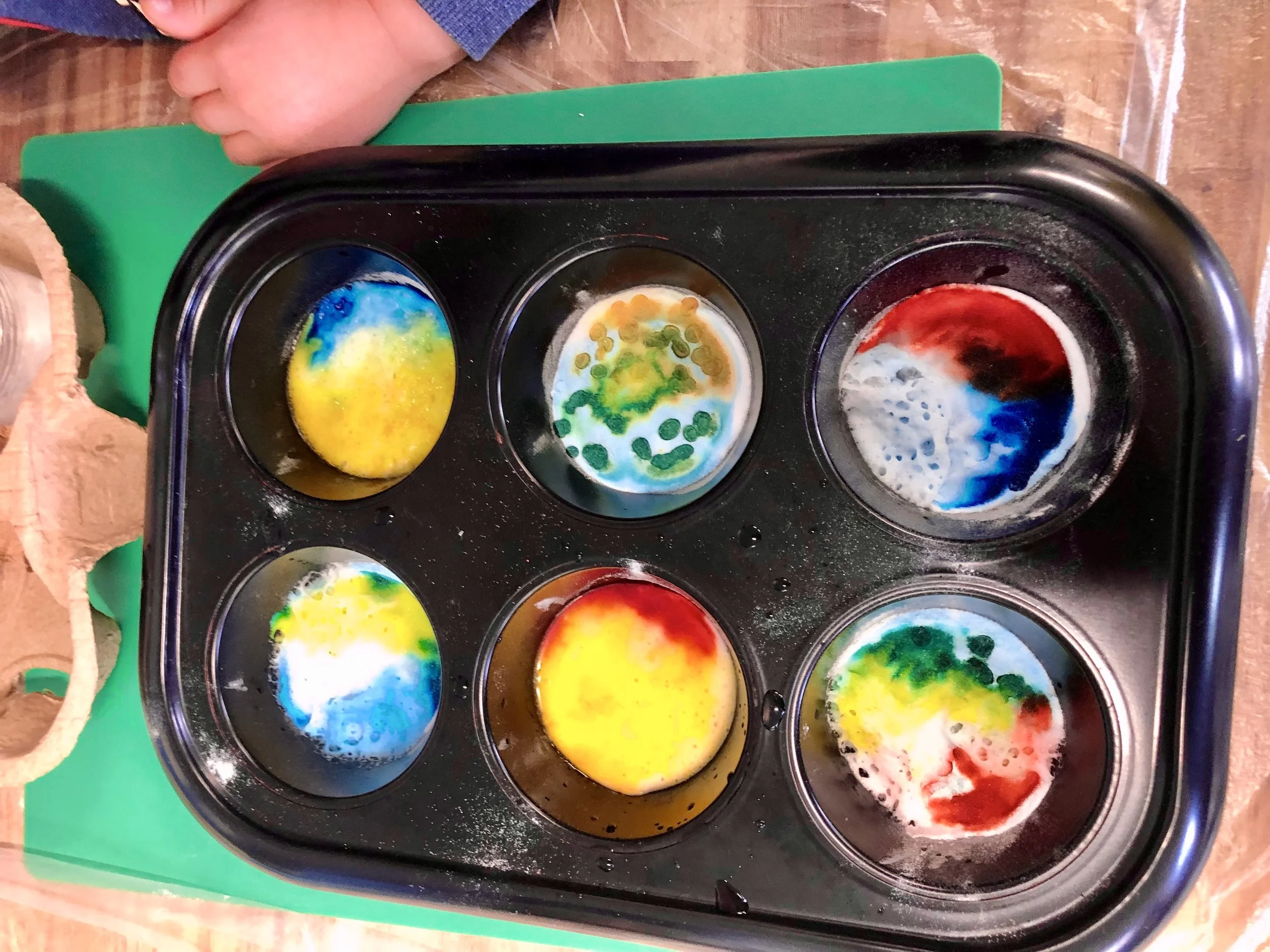
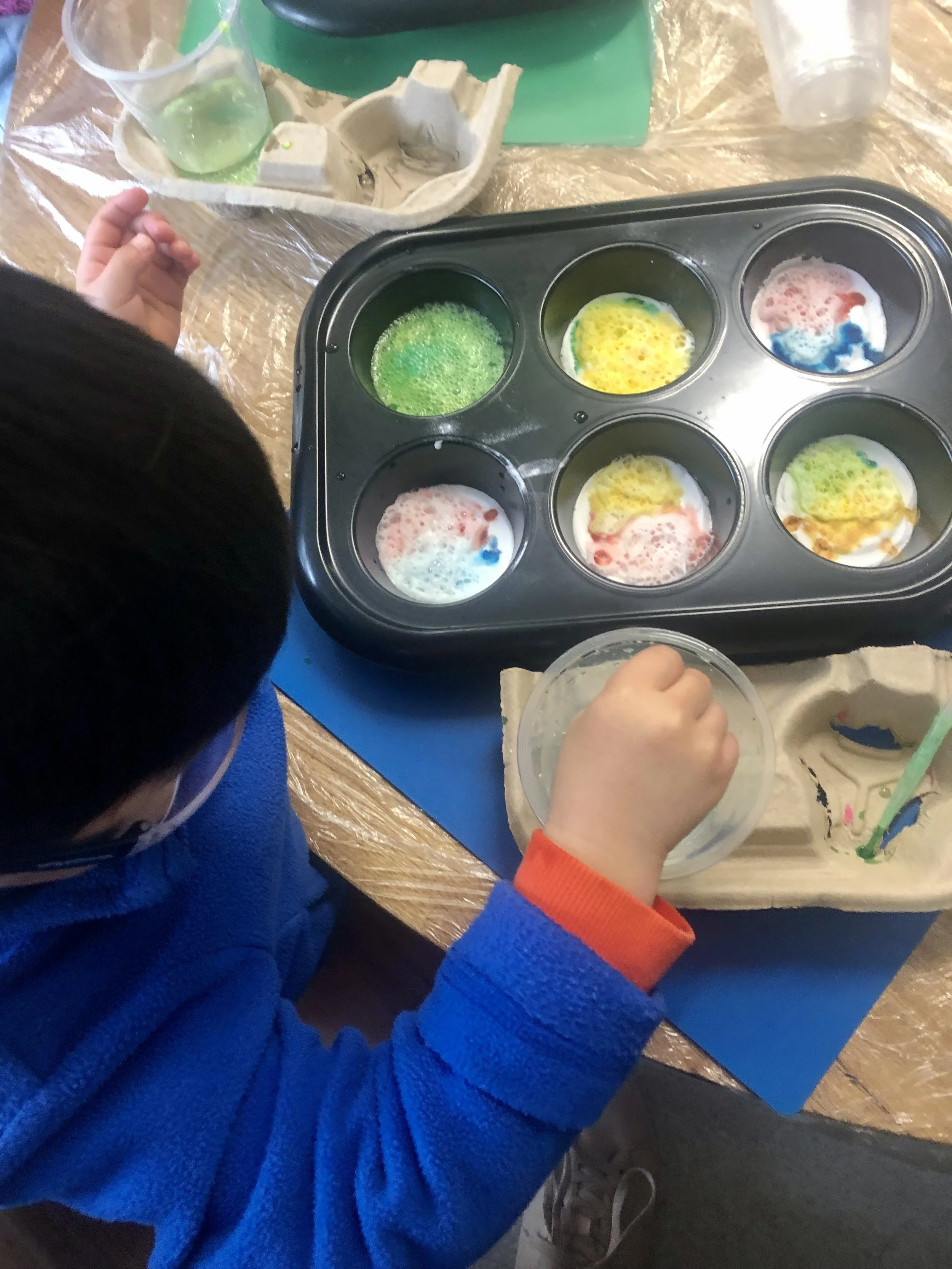
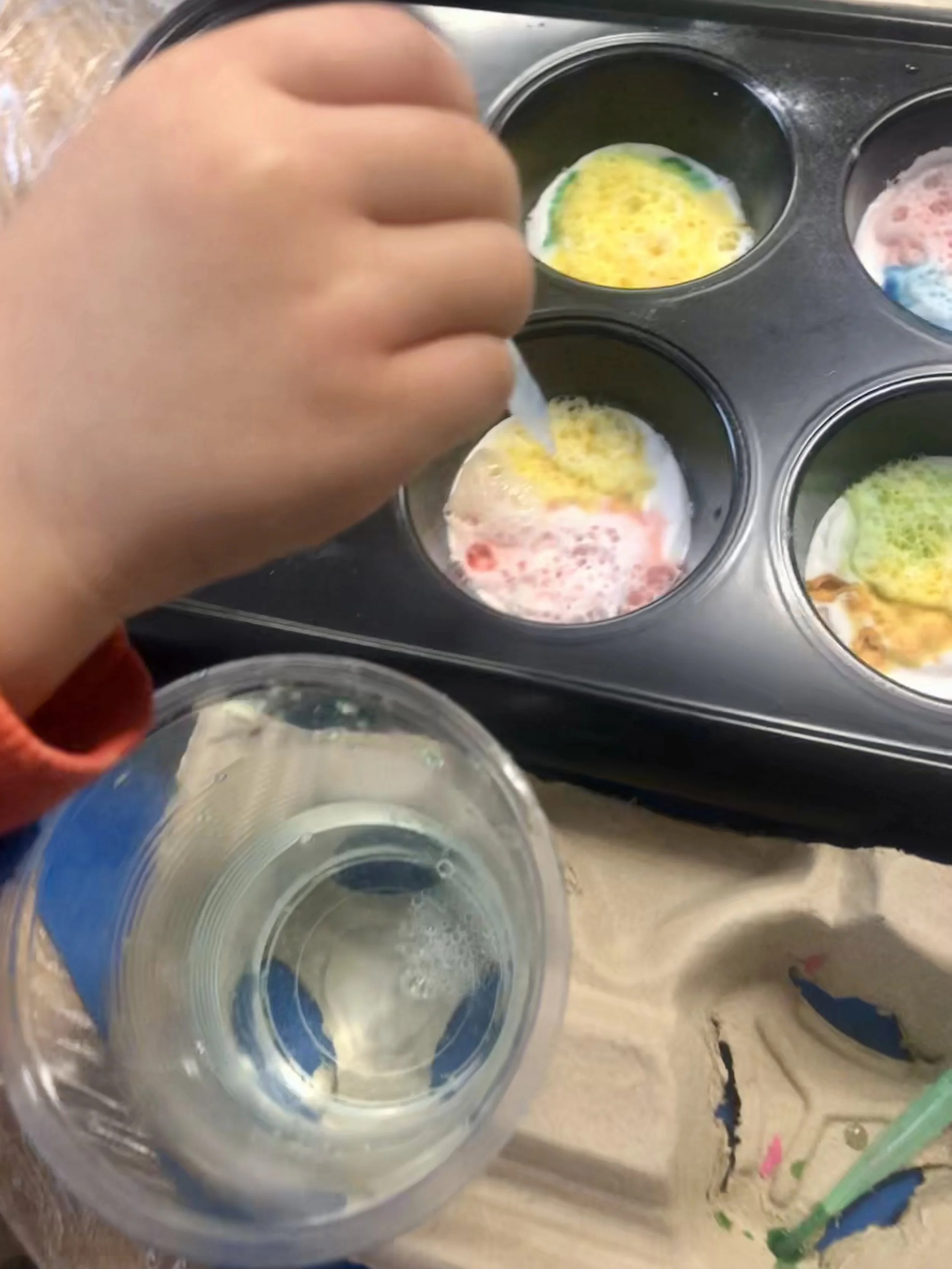
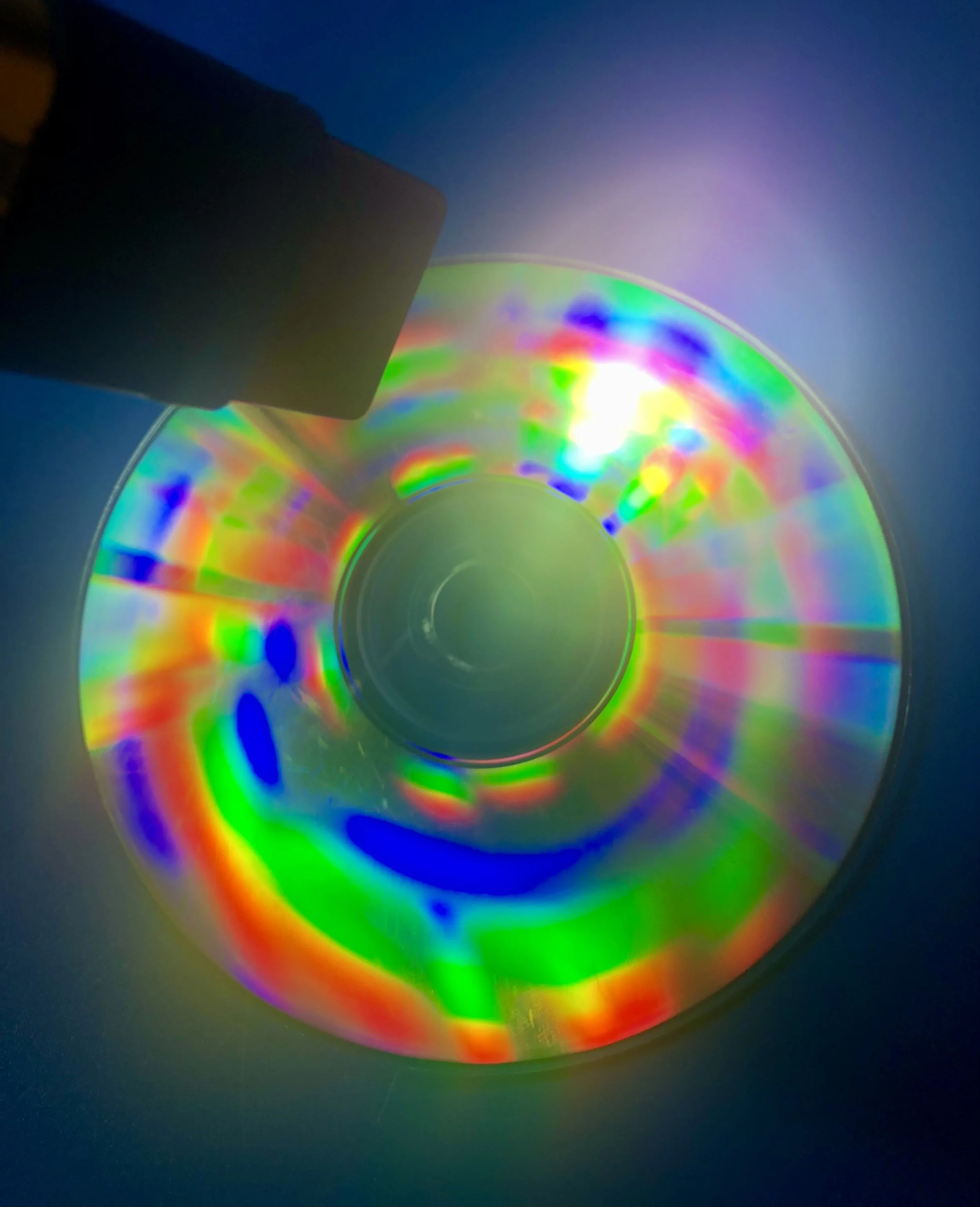

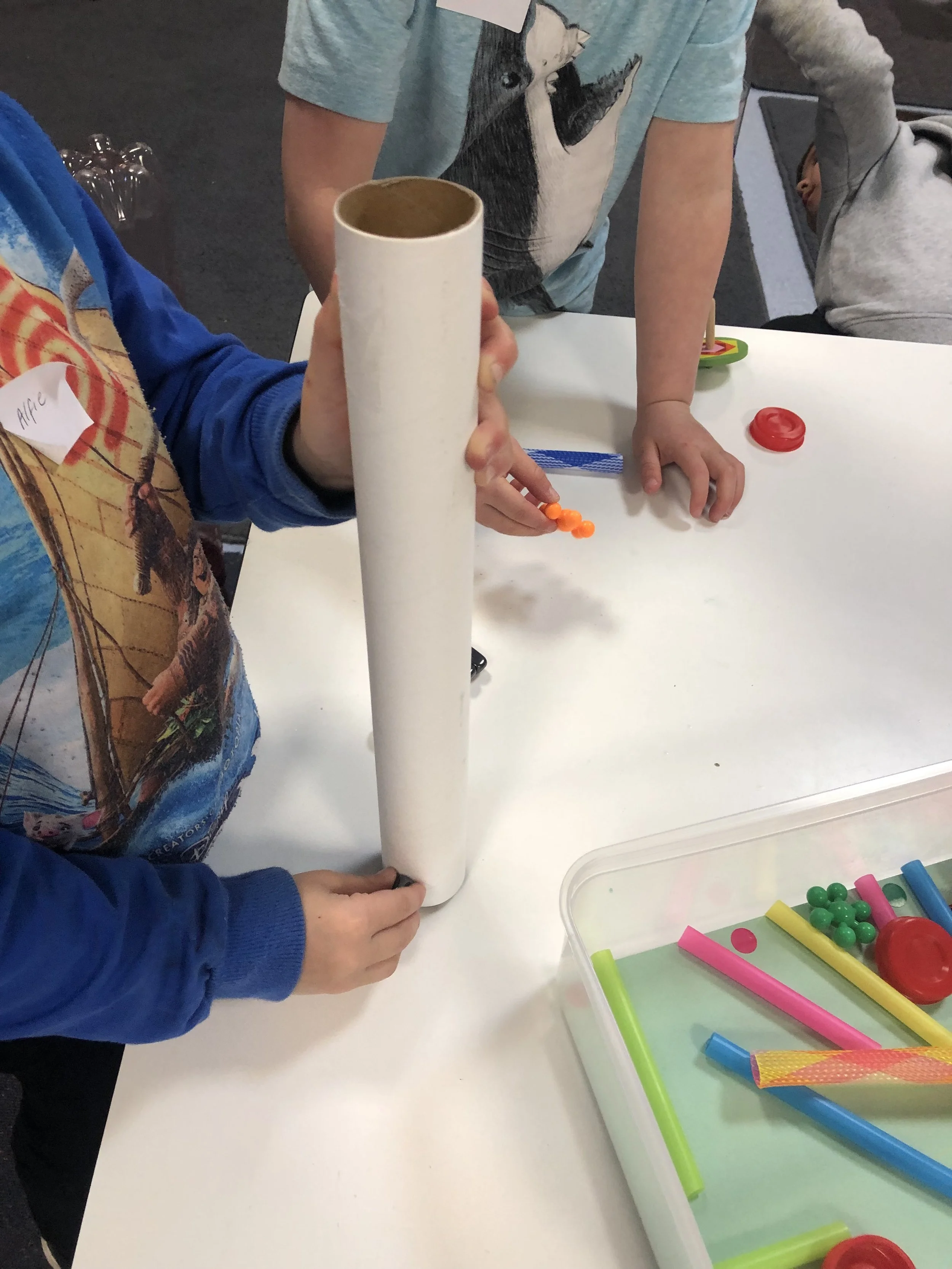
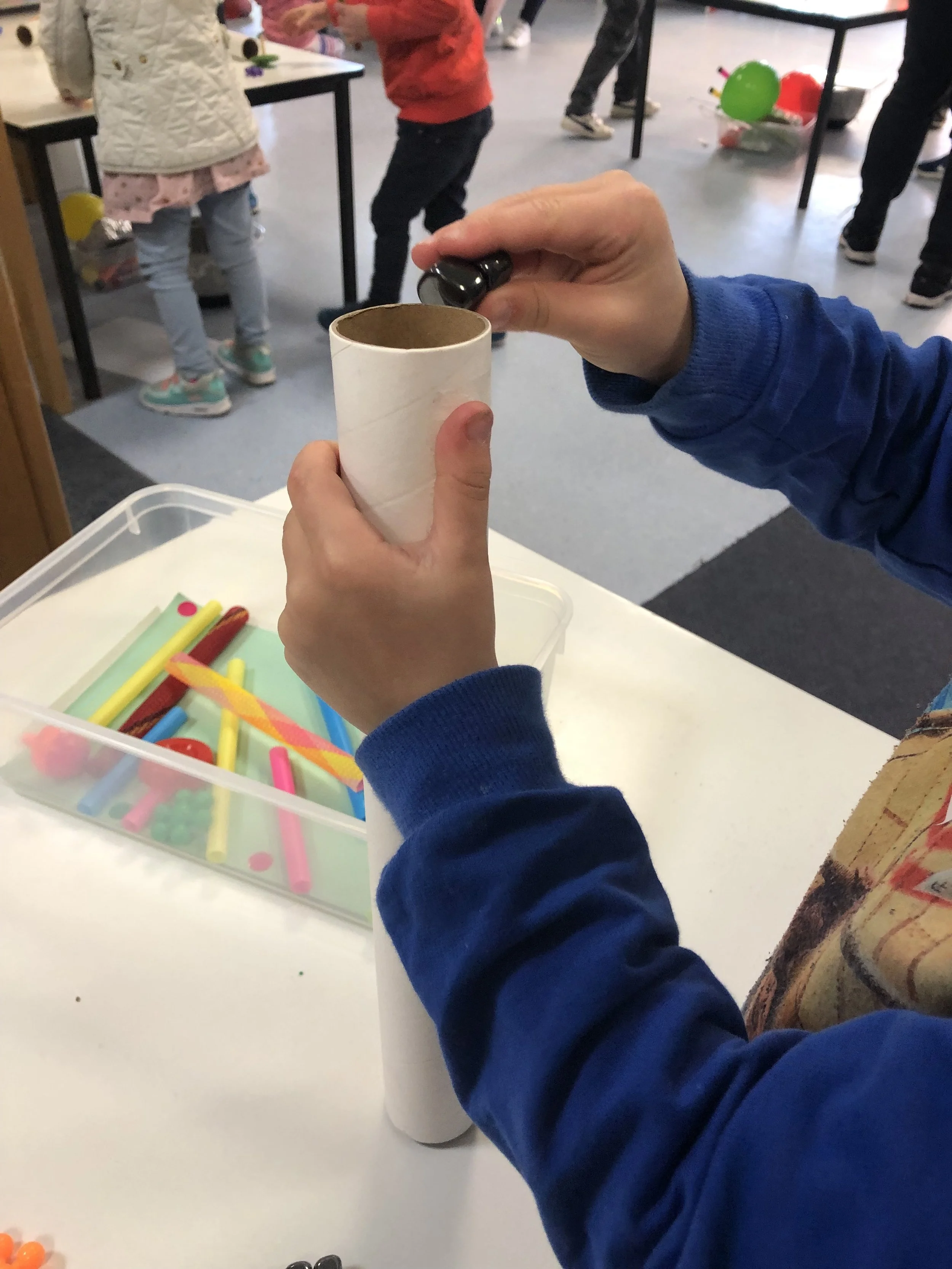

The Bubble and Fizz workshop is all about encouraging the science mindset of curiosity, investigating, predicting and testing fit for a growing scientist. The workshop includes plenty of exciting hands-on experiments and activities. Suitable for 3 and 4-year-old Kindergarten, all activities are safe, non-toxic and touch-friendly.
BUBBLES. Blow real bubbles we can touch without popping! Blow small bubbles within large bubbles. Observe the dancing rainbows on the bubbles surface.
MAGNETICS Use a large magnet to discover magnetic objects buried in sand. Play with a magnet maze and tube.
TEST TUBES. Use pipettes to drip food coloured water into test tubes of vegetable oil. The ‘lava lamp’ effect is beautiful, fascinating, and fun to create.
MOTION. Create tornados in bottles, bounce jump straws, and twirl spinning tops.
FIZZ. Use pipettes to drip vinegar into colourful bicarb soda to fizz and colour mix!
and more...
MAKE A BOOKING NOW →
CURRICULUM LINKS;
VEYLDF Learning Outcomes
Outcome 1, Identity - through hands-on science activities, children are supported to act with self-confidence and autonomy, seeking and accepting new challenges, and demonstrating initiative by asking questions.
Outcome 2, Connection – science workshops provide an opportunity for a shared group experience, where everyone participating is included and can contribute. Children often work with partners to share science activities, strengthening their connection to classmates. Science workshops reveal to children the science they use in daily life, and connect them to the bigger world of scientific knowledge.
Outcome 3, Wellbeing - inquiry-based science activities encourage perseverance and resilience in the face of new learning situations. Children experience wellbeing and a sense of achievement through hands-on learning.
Outcome 4, Learning - science workshops encourage children to be curious and enthusiastic about their learning. When given opportunities to generate questions about situations and phenomena, make predictions, carry out courses of action and evaluate results, children are expanding their scientific thinking skills. This creates learning dispositions that are essential for 21st century children, and underpin all future learning.
Outcome 5, Communication – science workshops introduce new vocabulary through scientific language. Children express and share their ideas. Scientific communication includes children’s recording/documenting of their findings.
Victorian Curriculum Content (F-2)
People use science in their daily lives (VCSSU041)
Use informal measurements in the collection and recording of observations (VCSIS052)
Respond to and pose questions, and make predictions about familiar objects and events (VCSIS050)
Participate in guided investigations, including making observations using the senses, to explore and answer questions (VCSIS051)
Compare observations and predictions with those of others (VCSIS054)